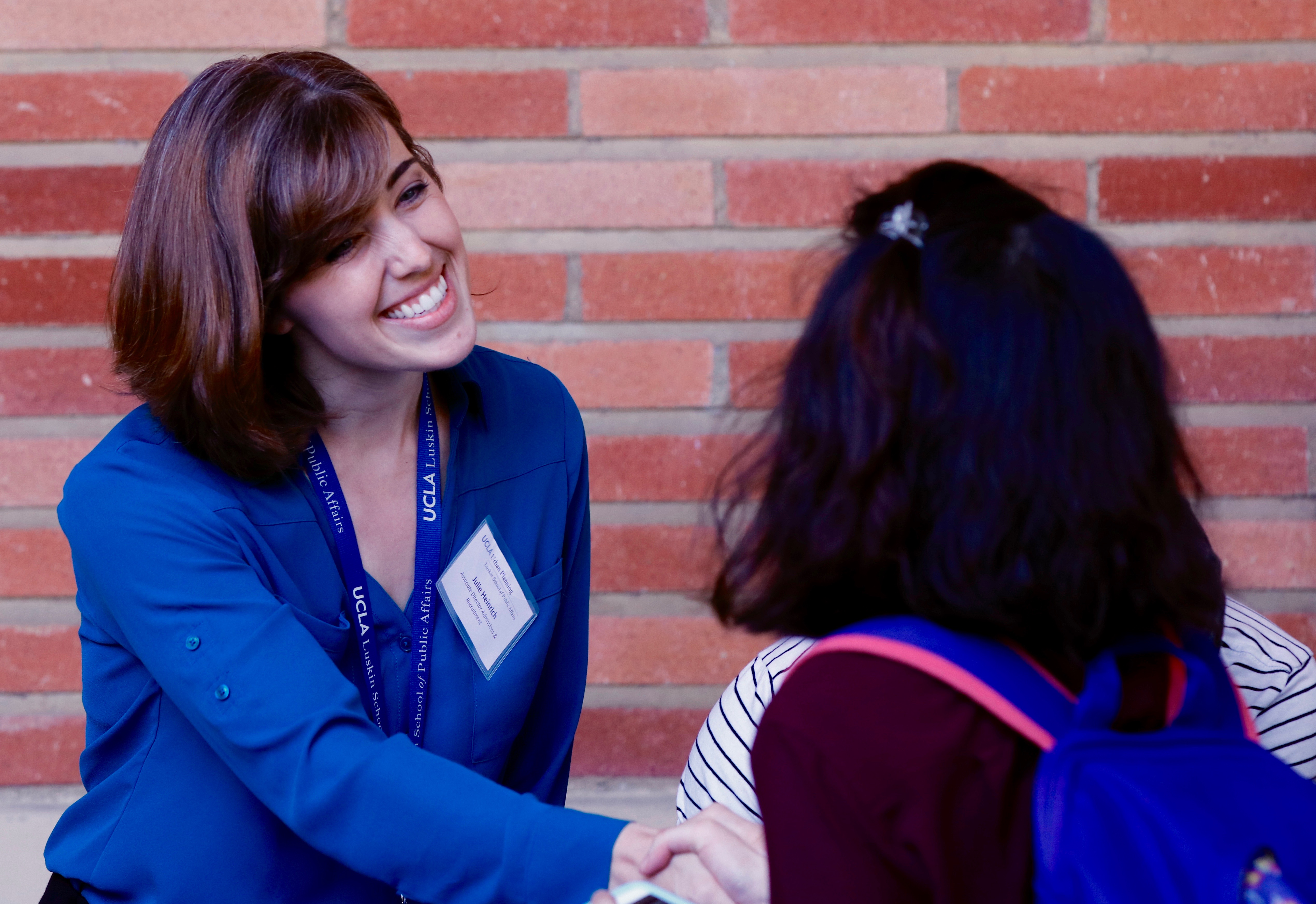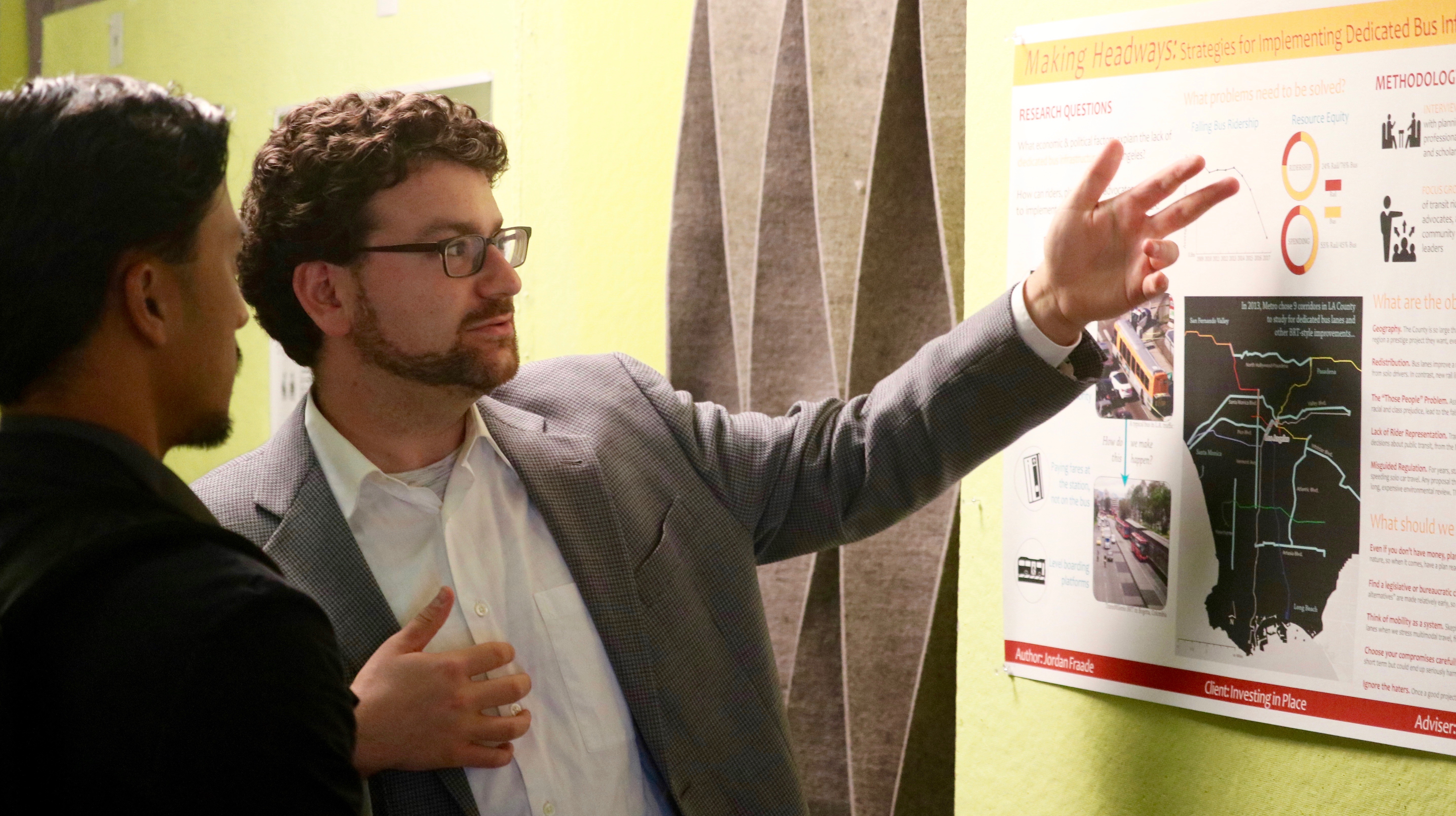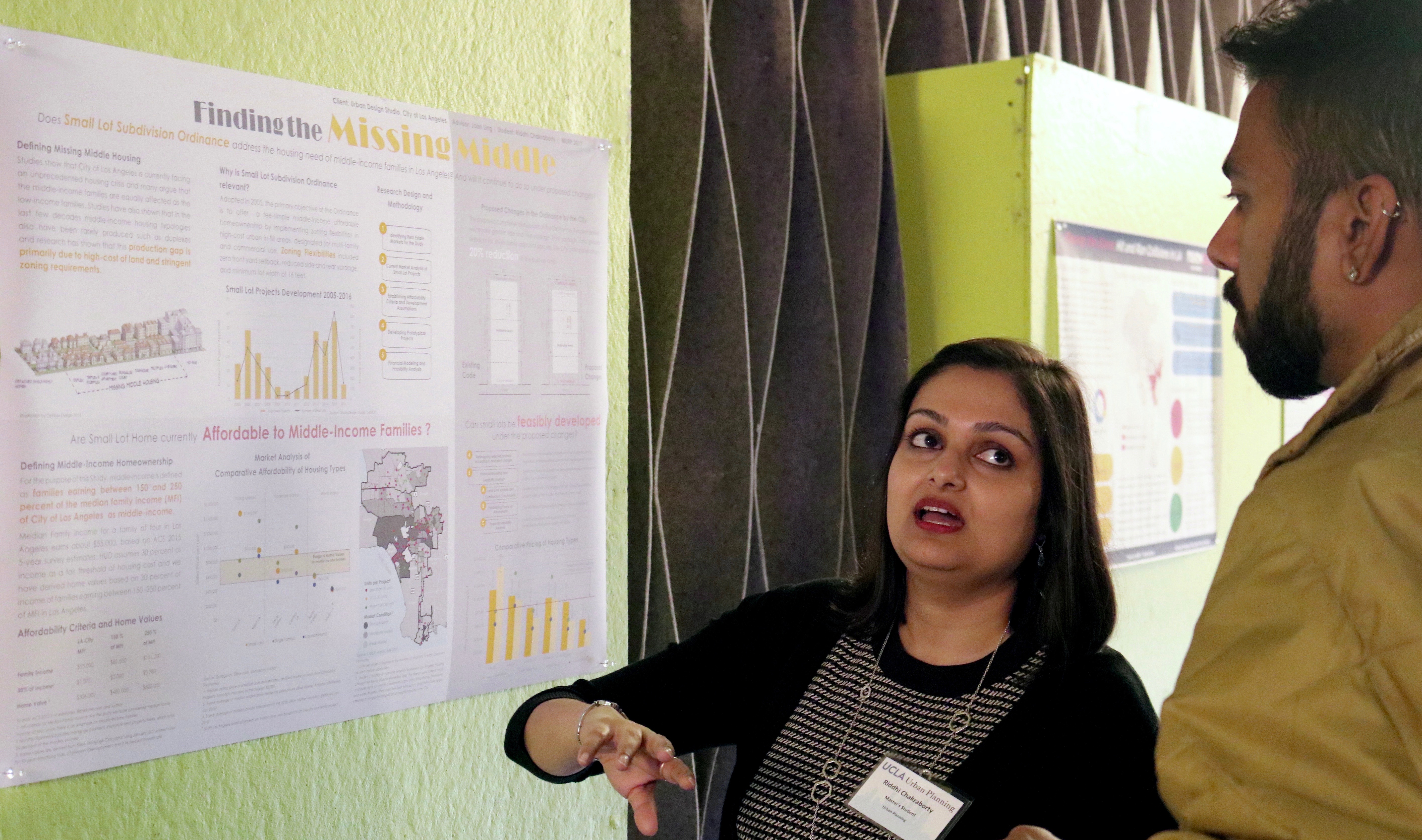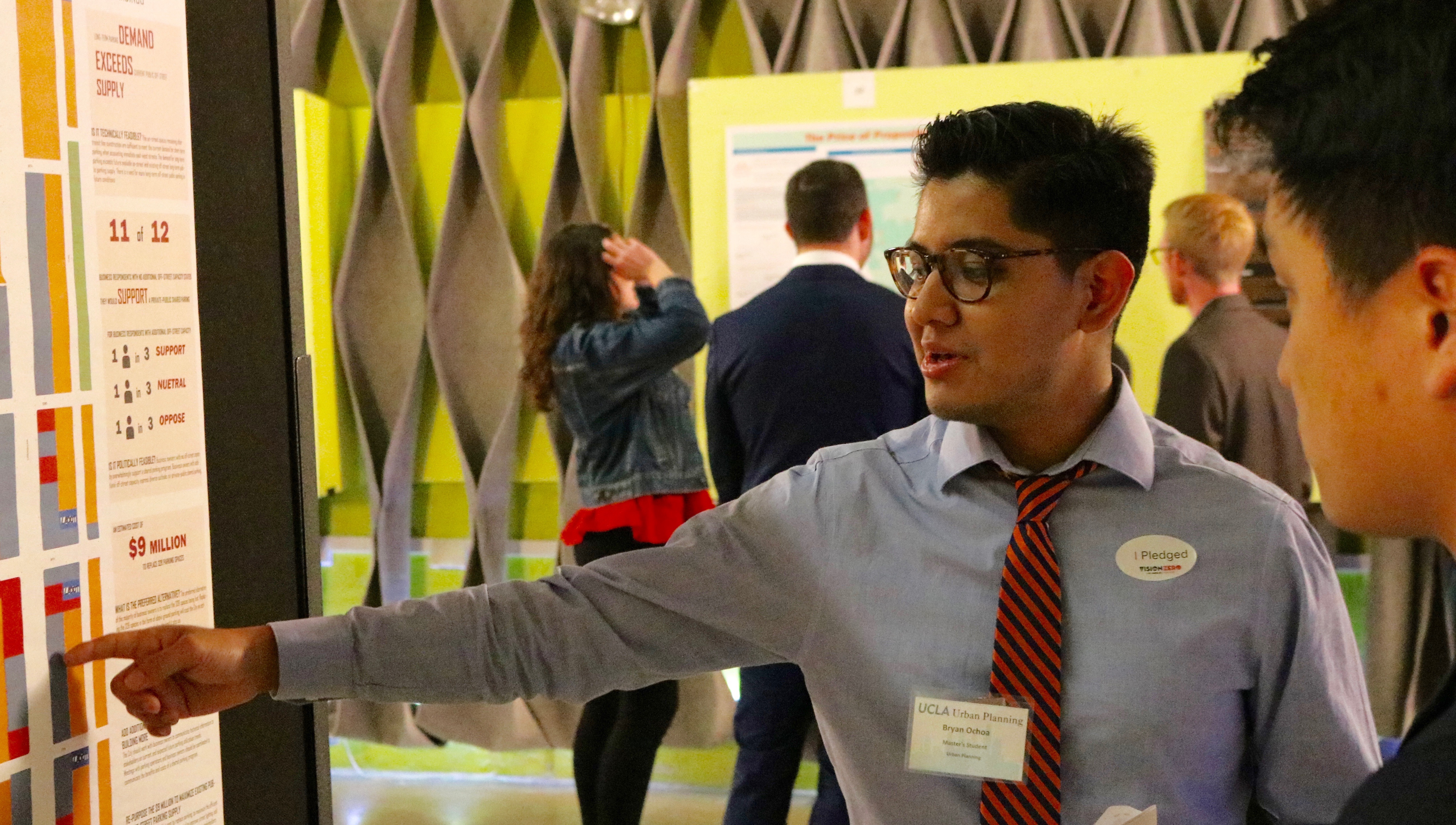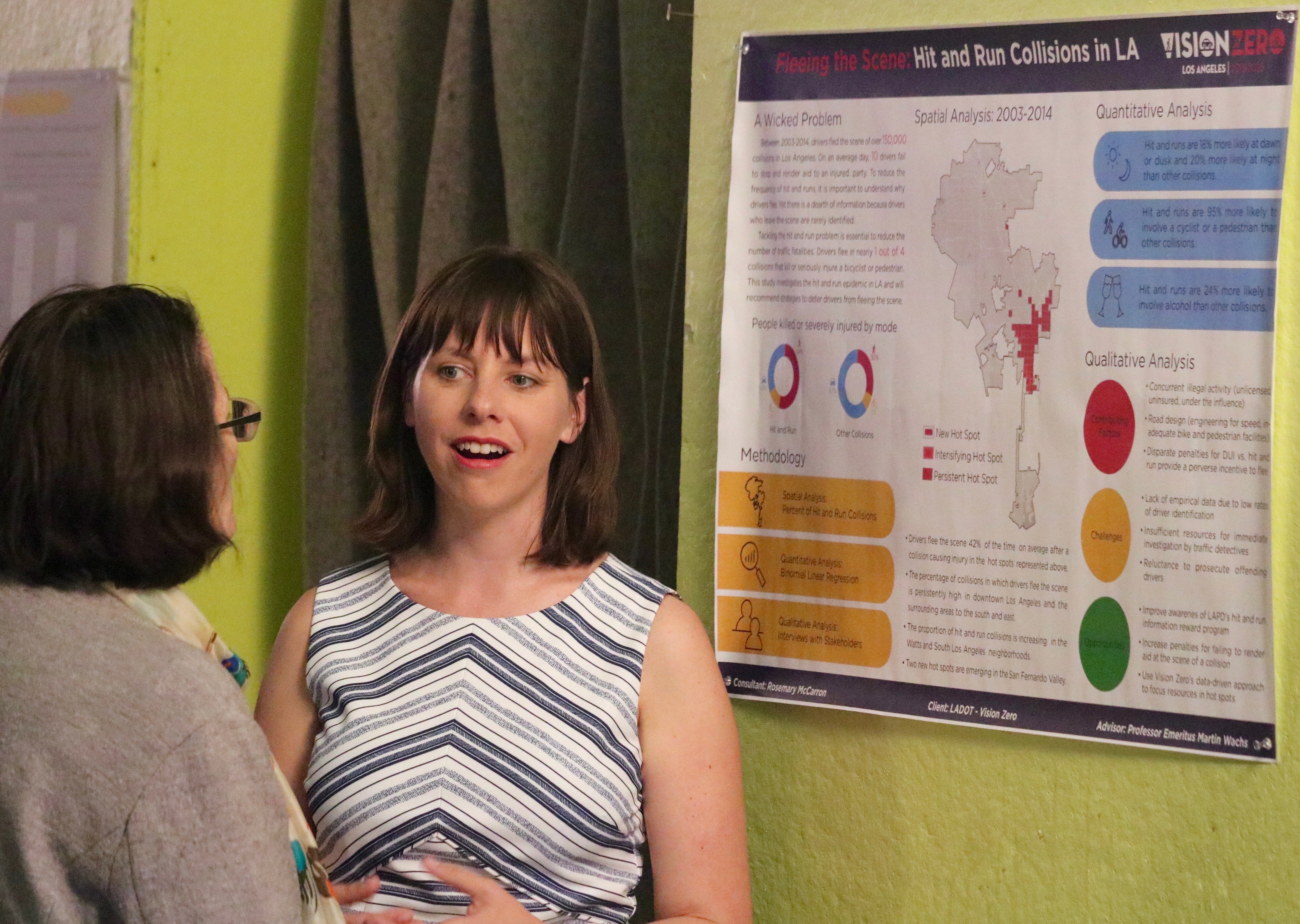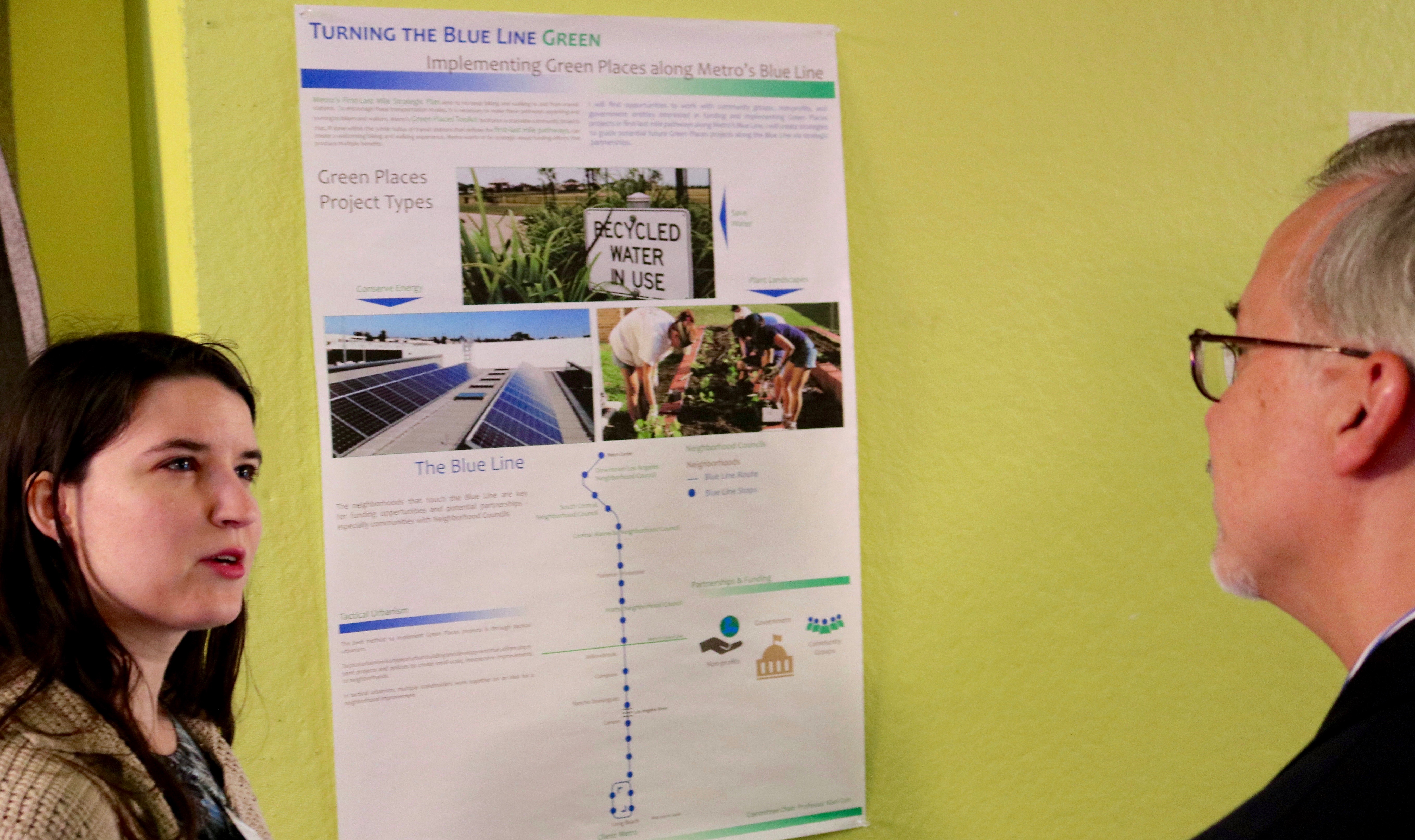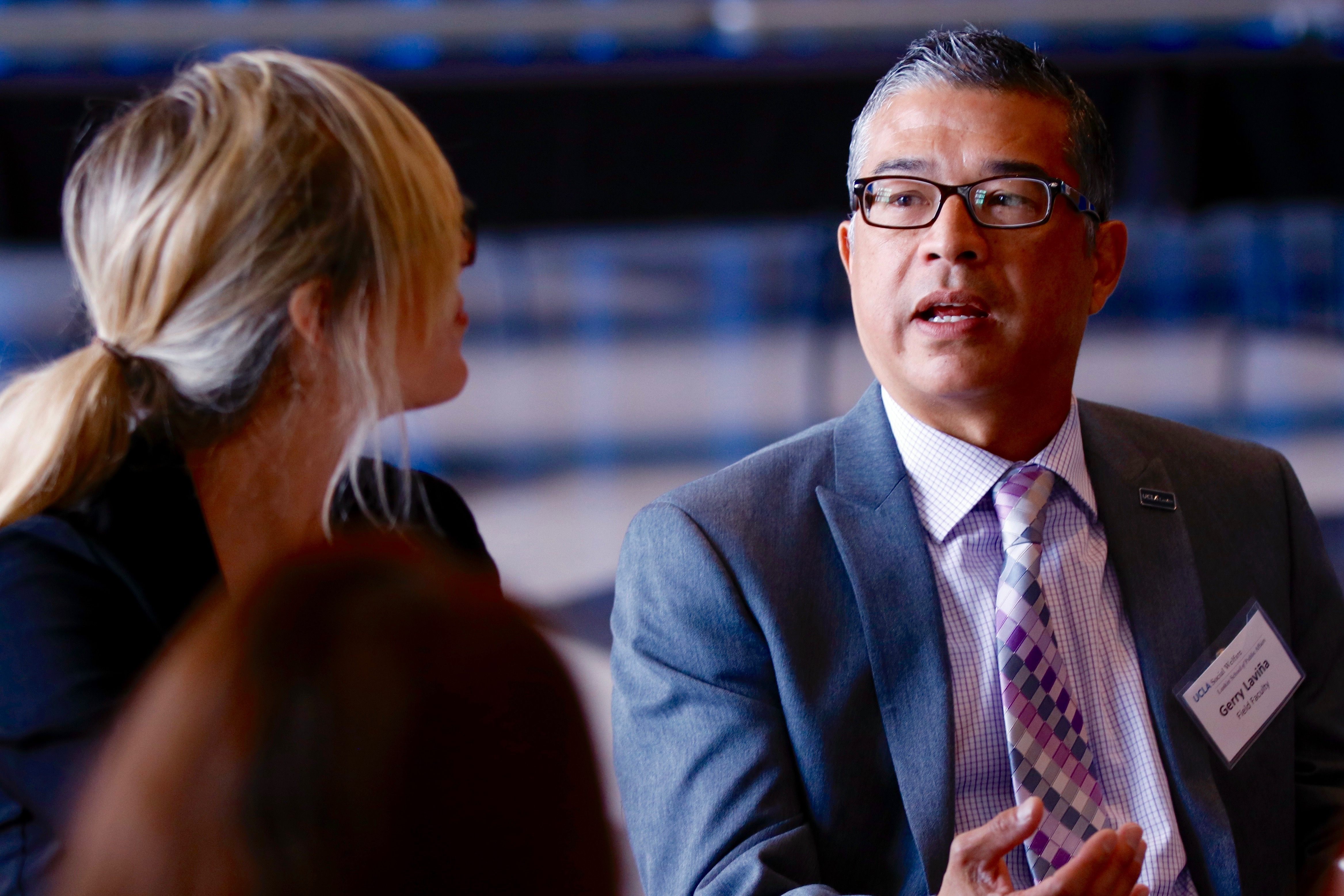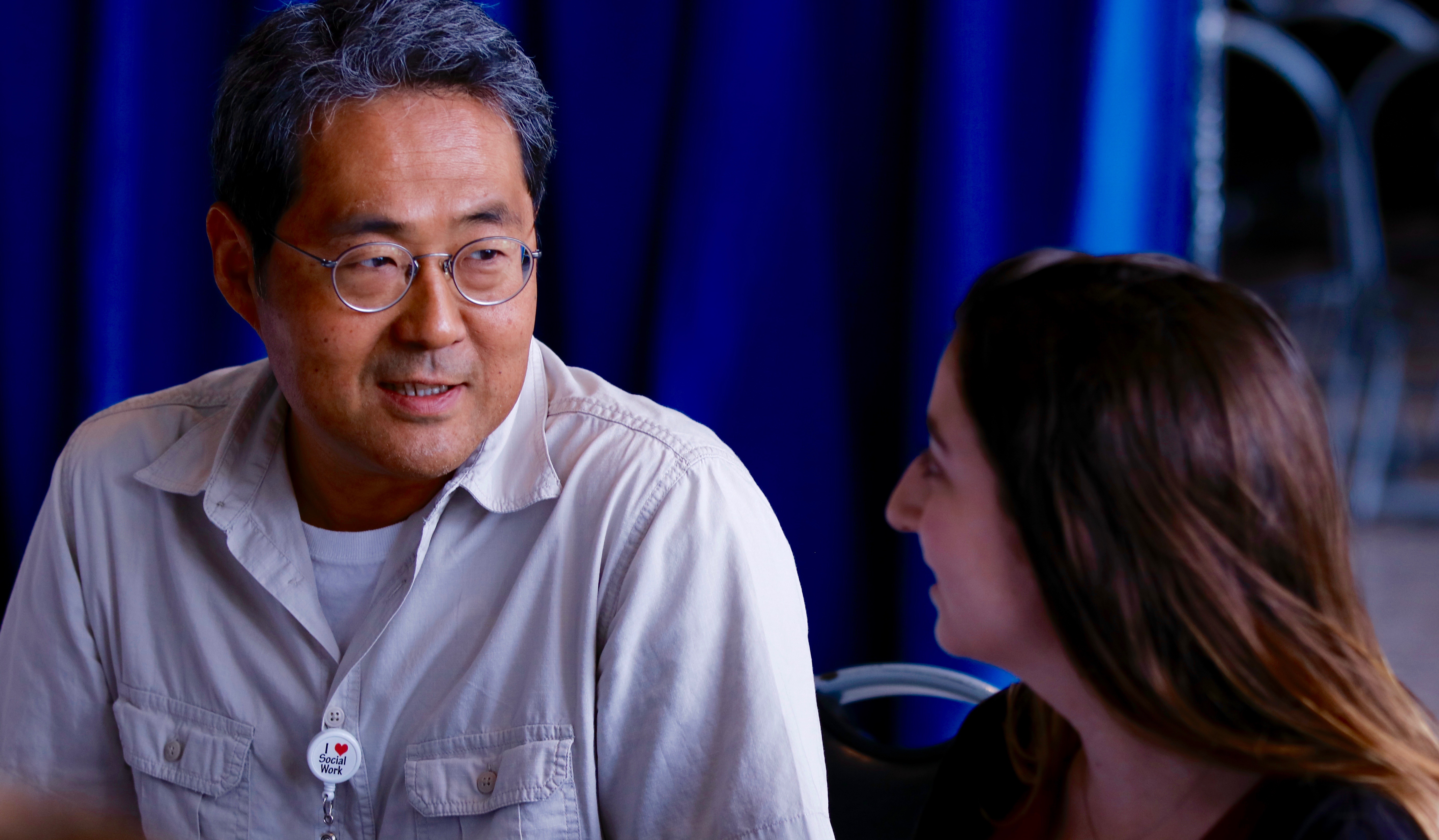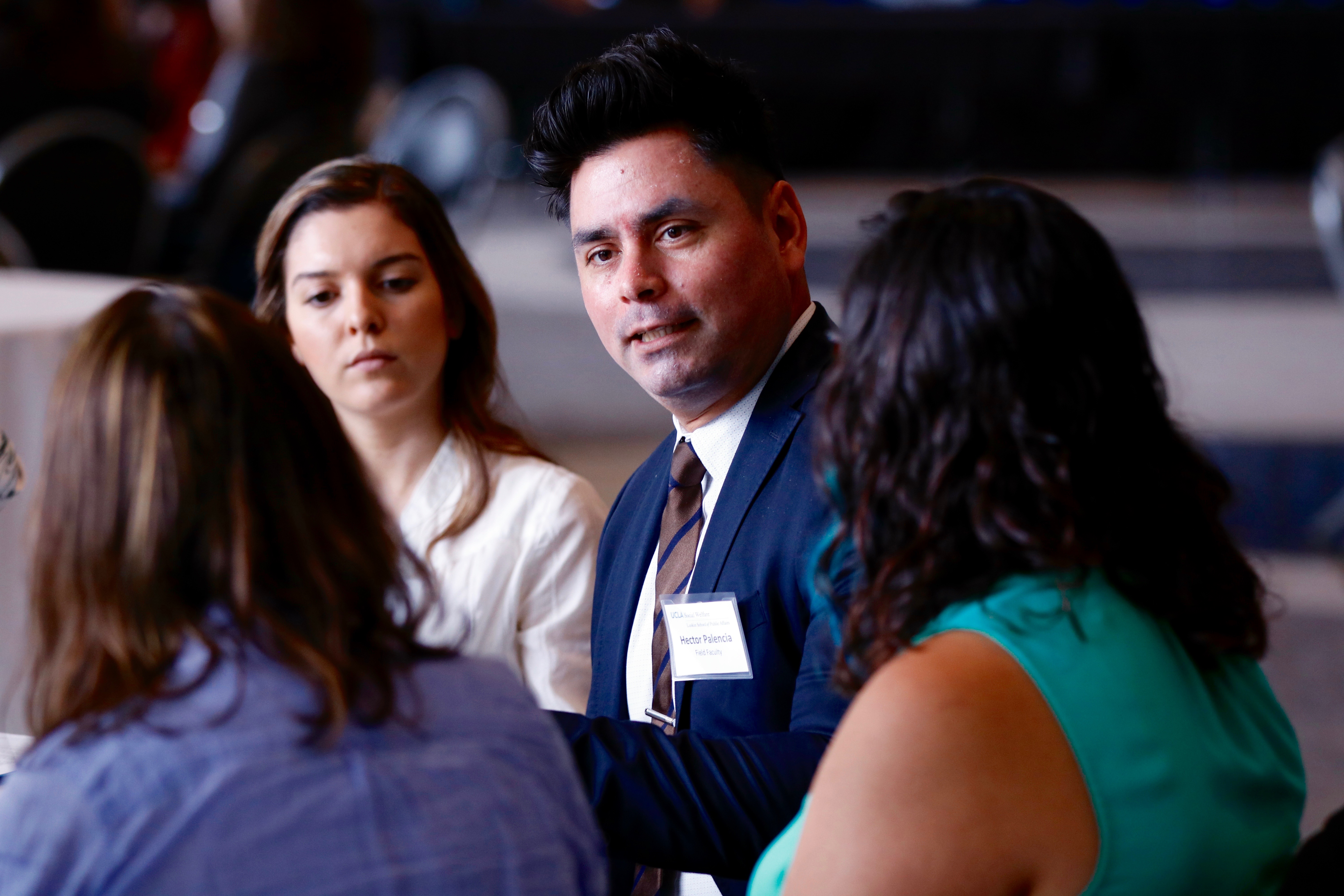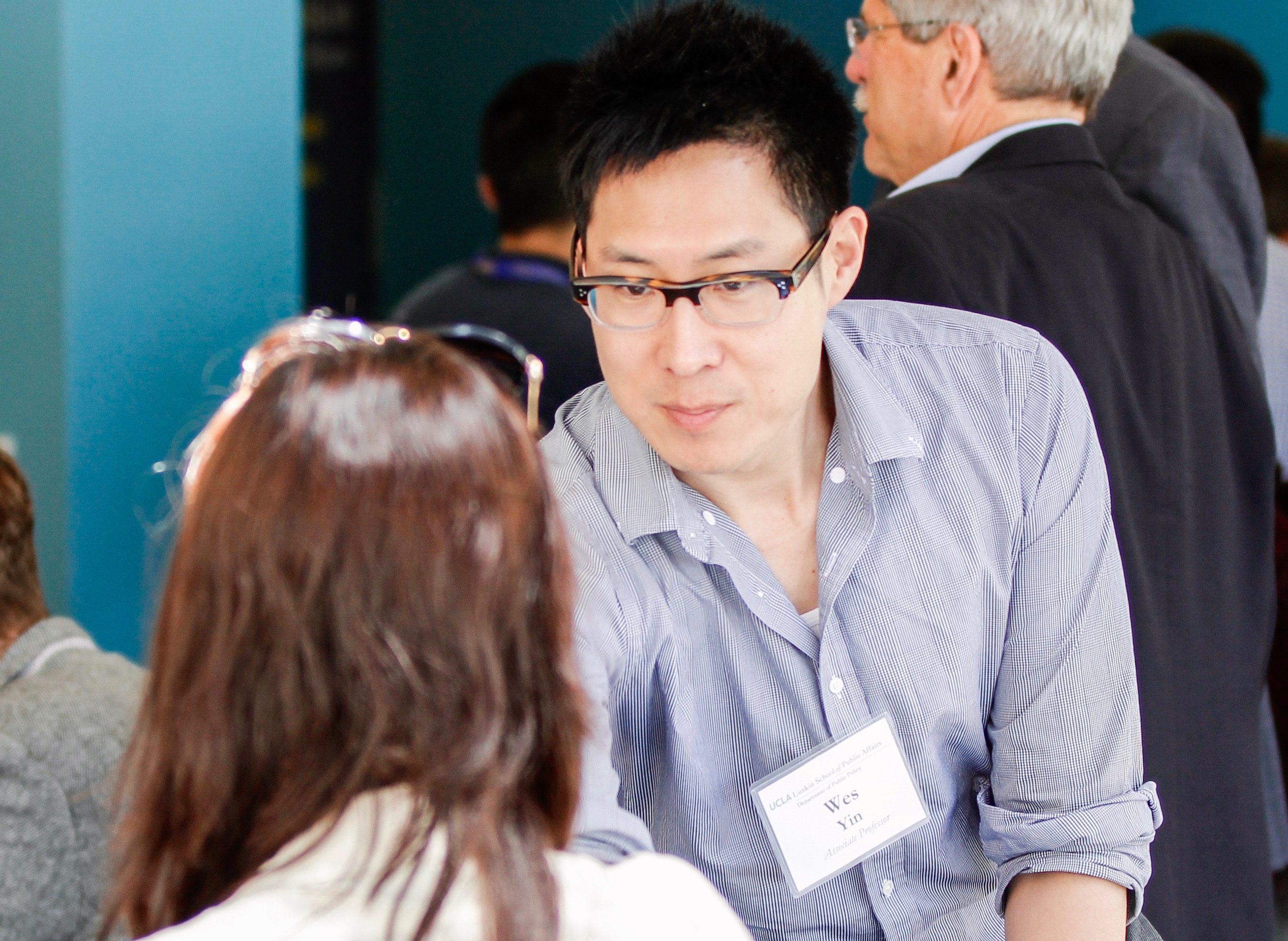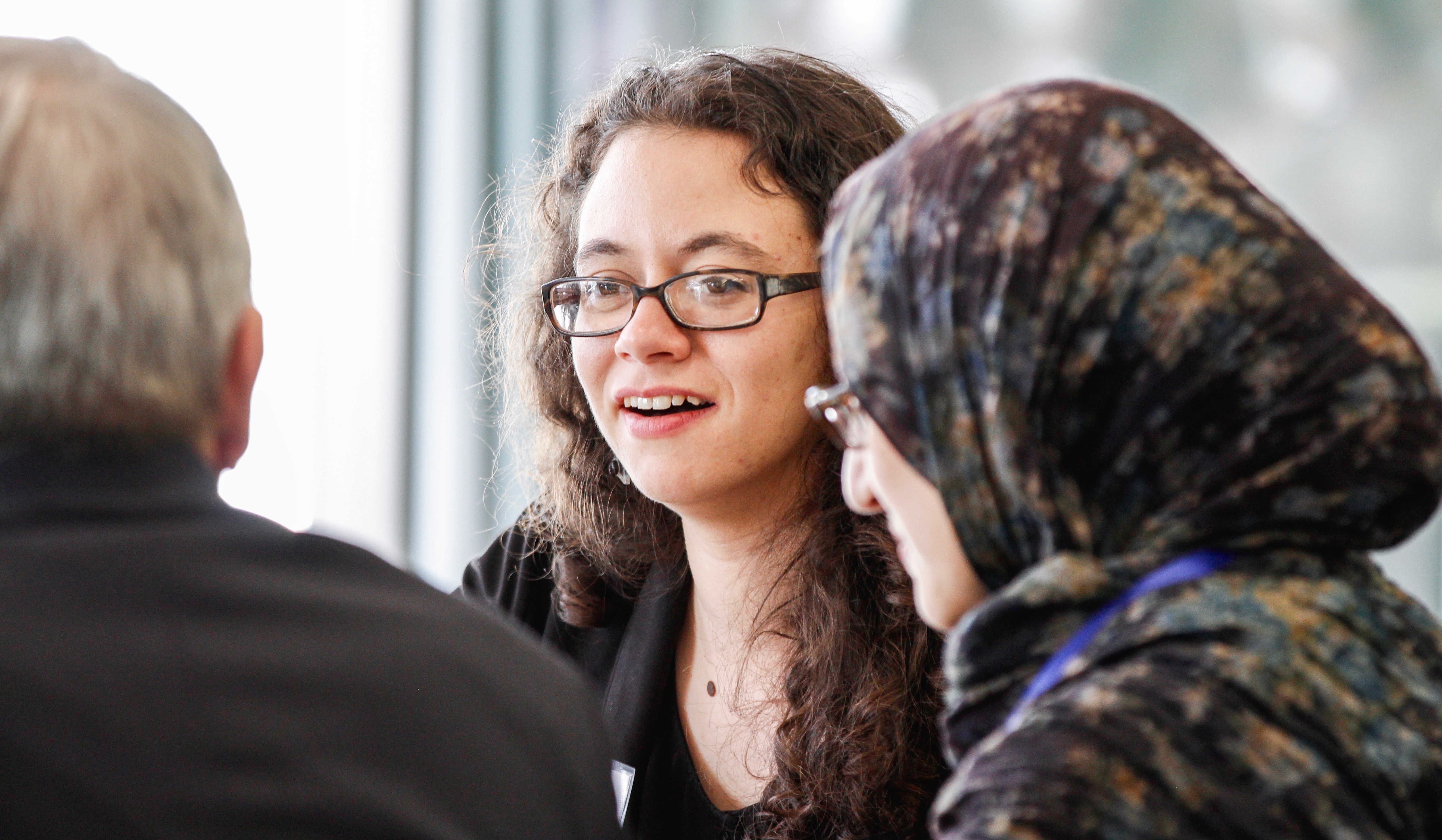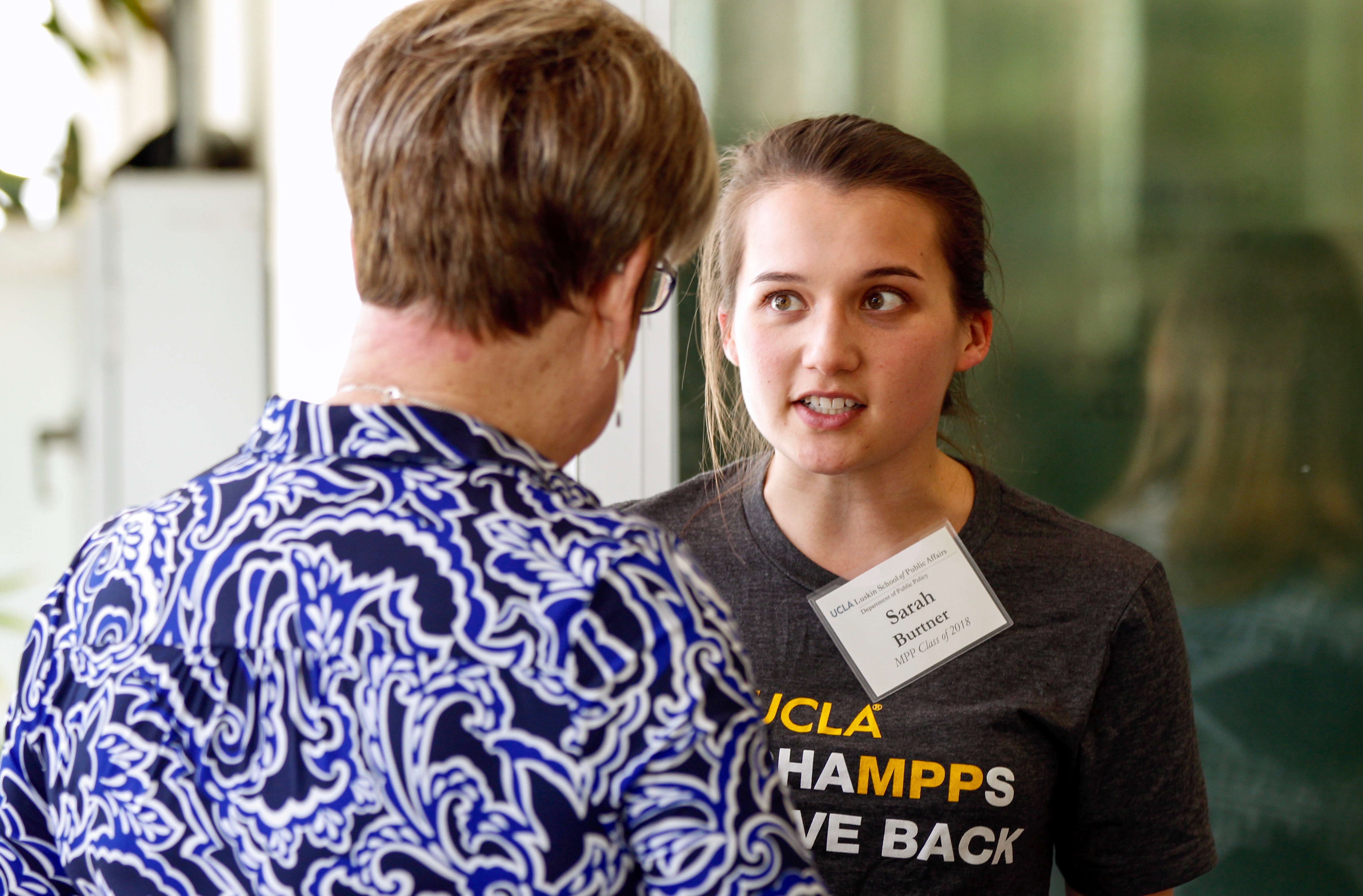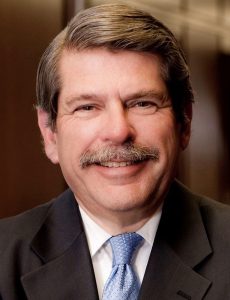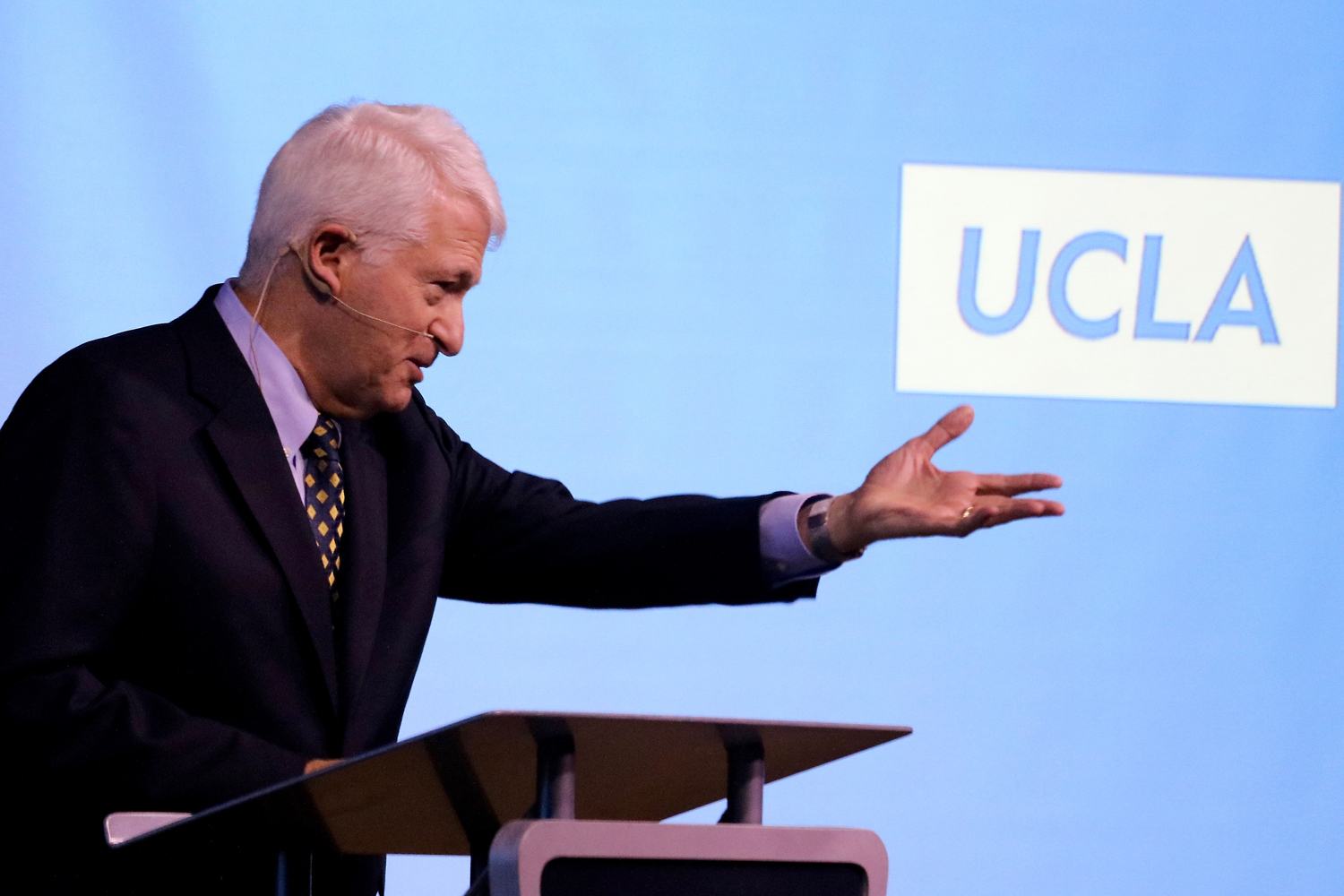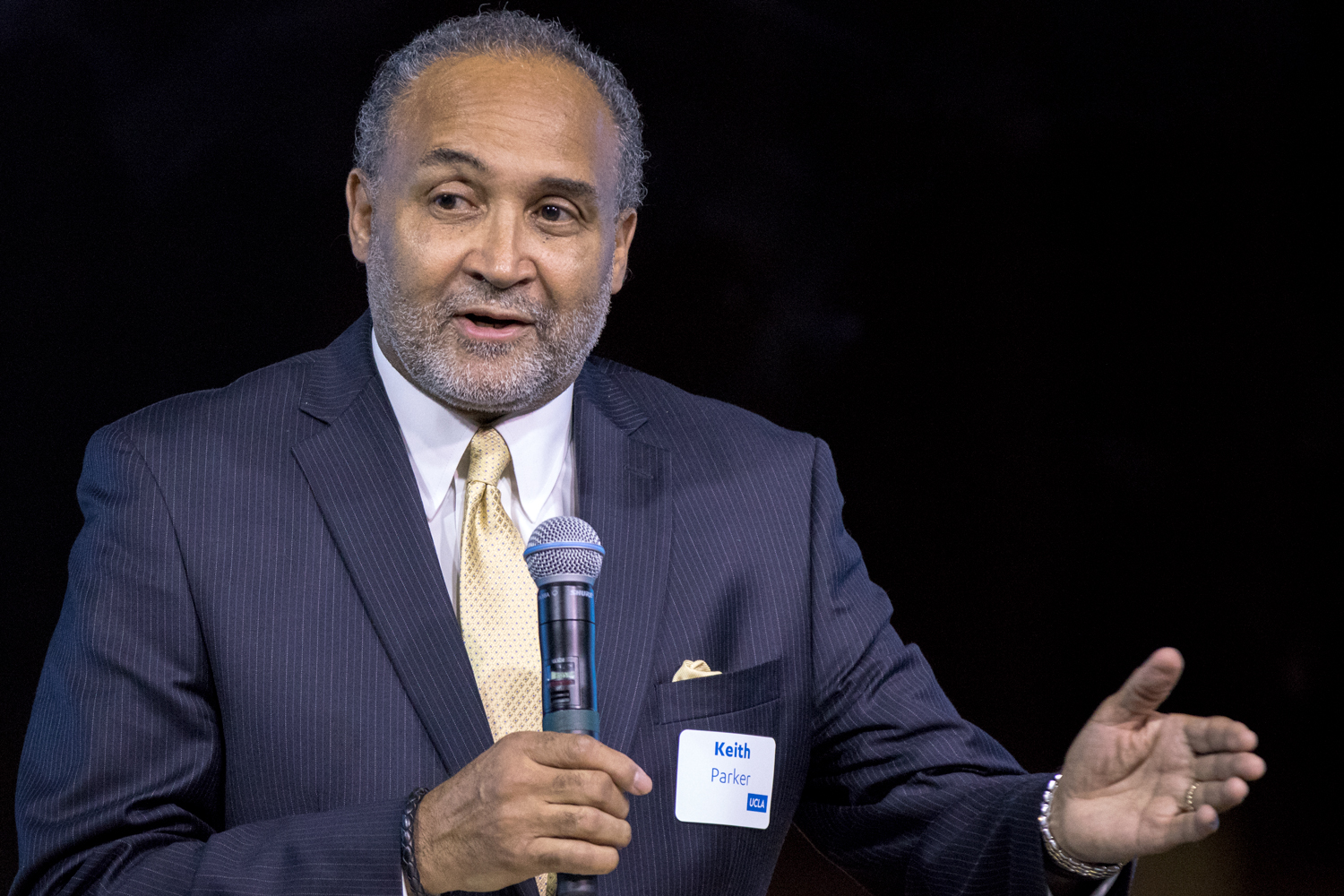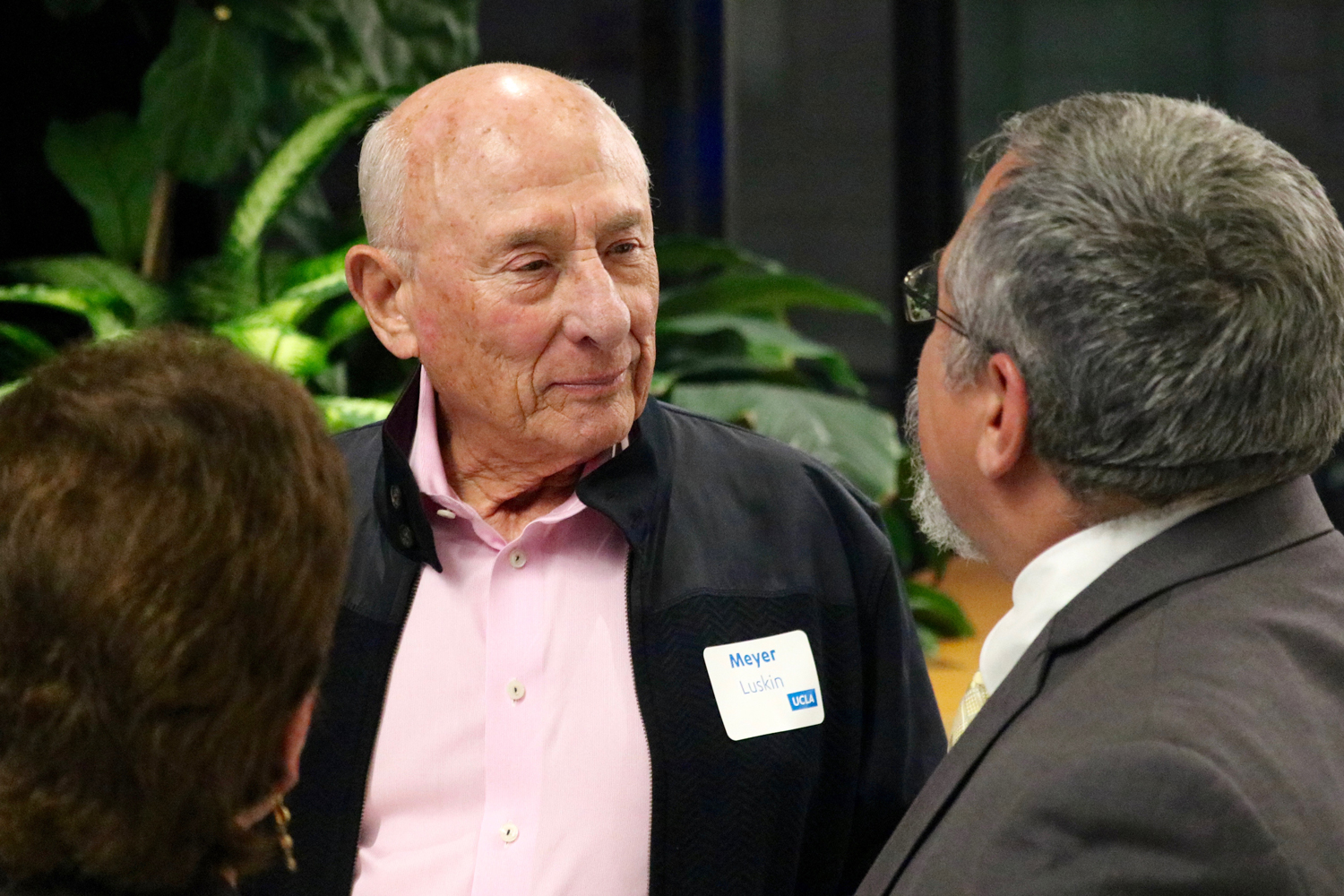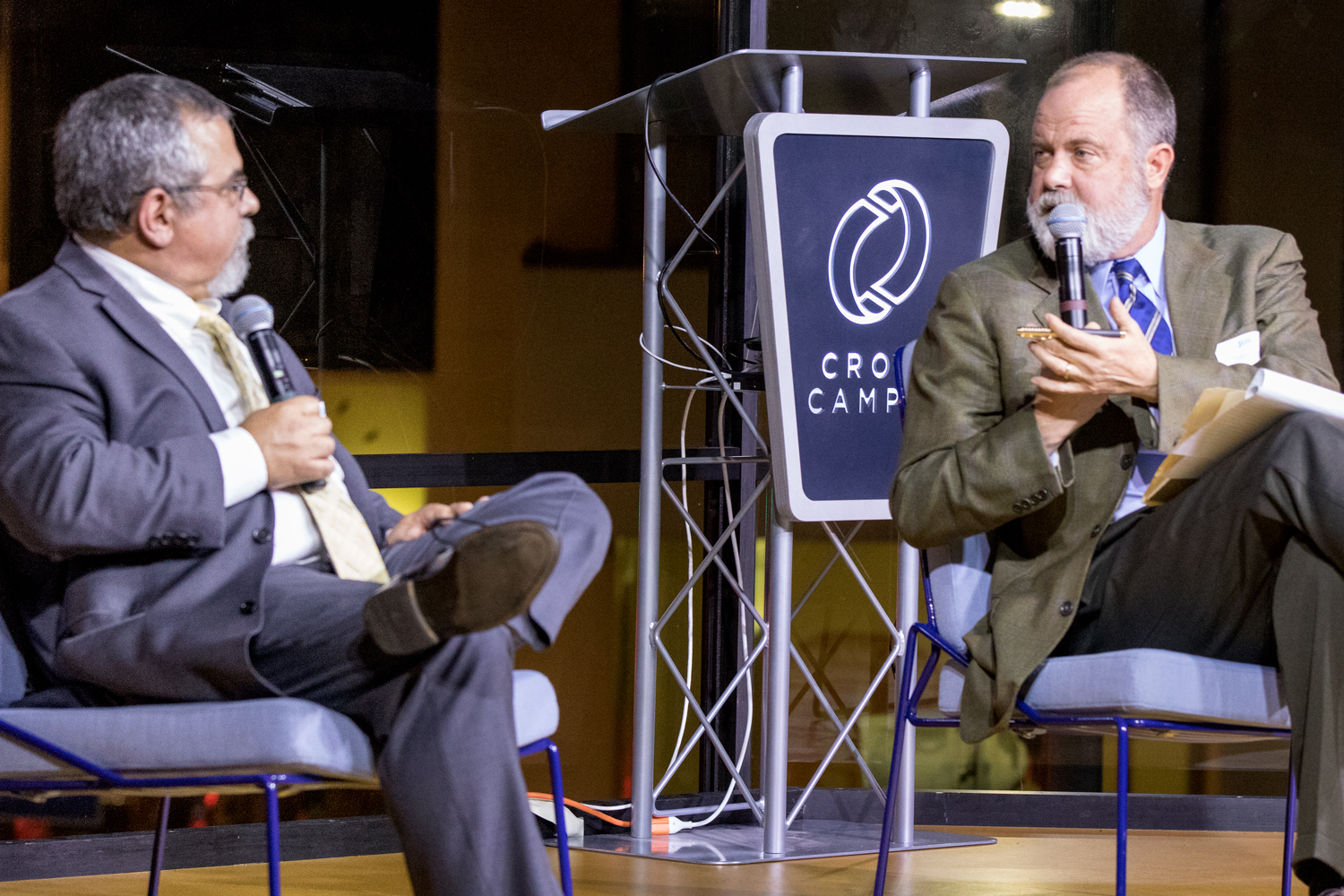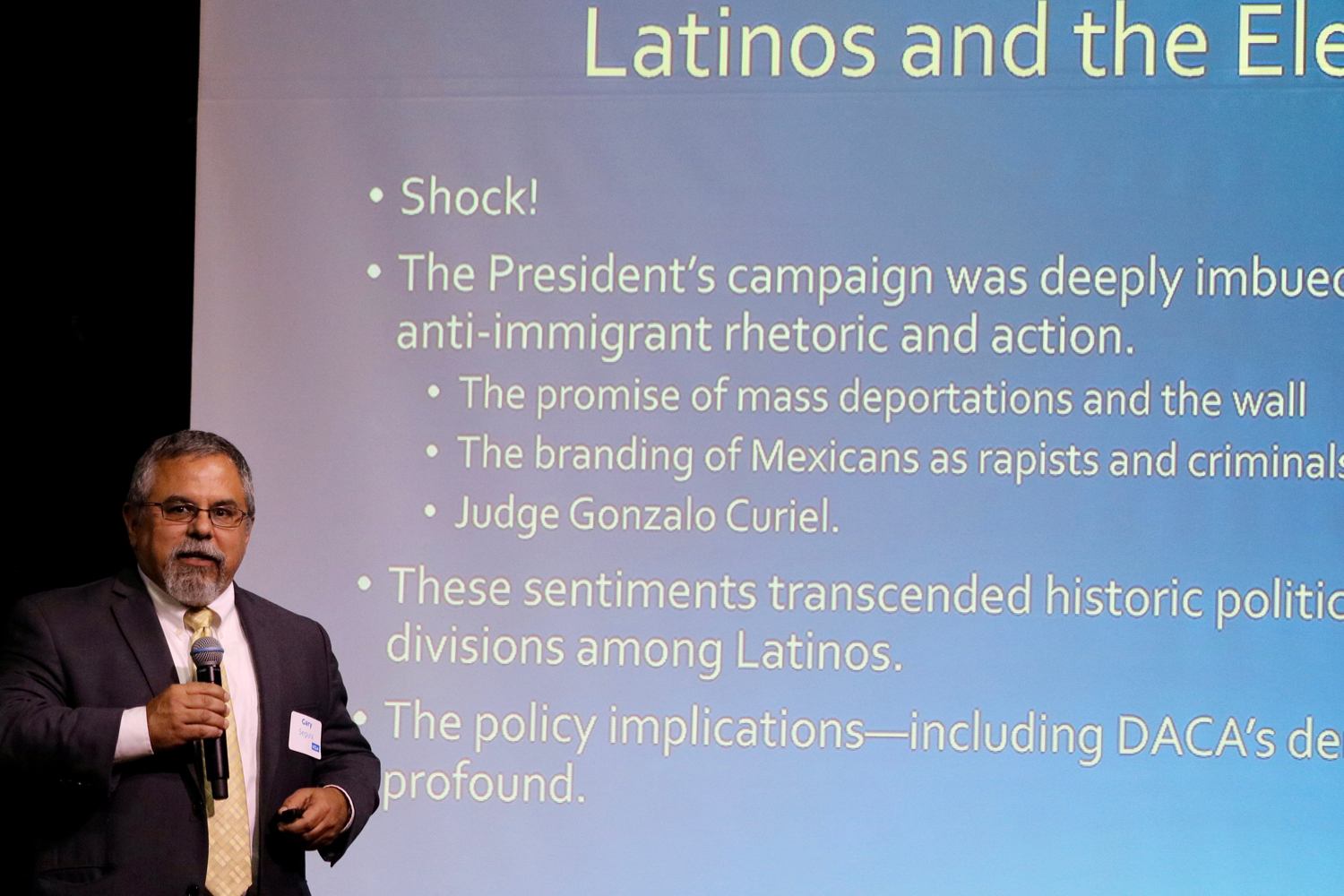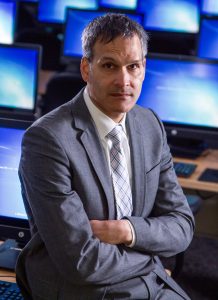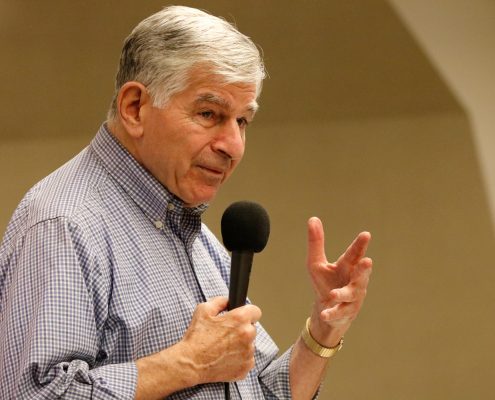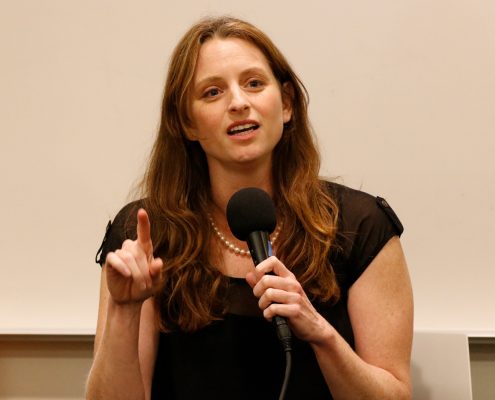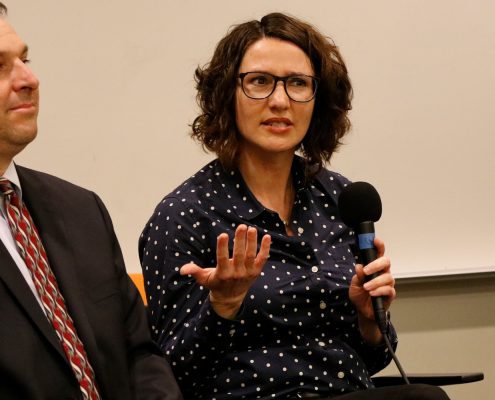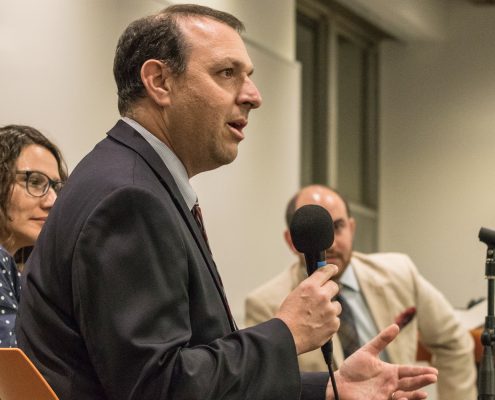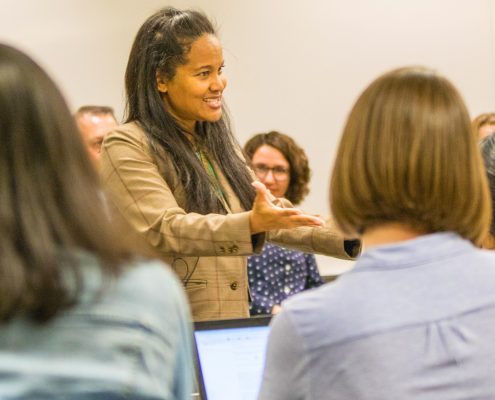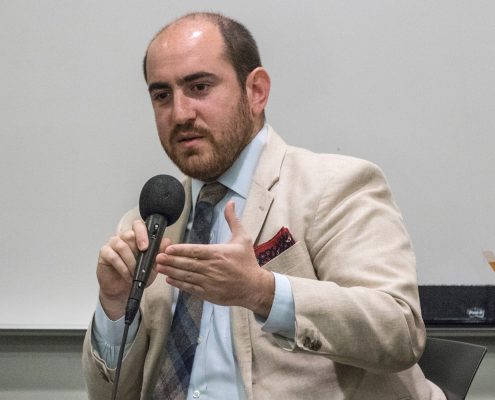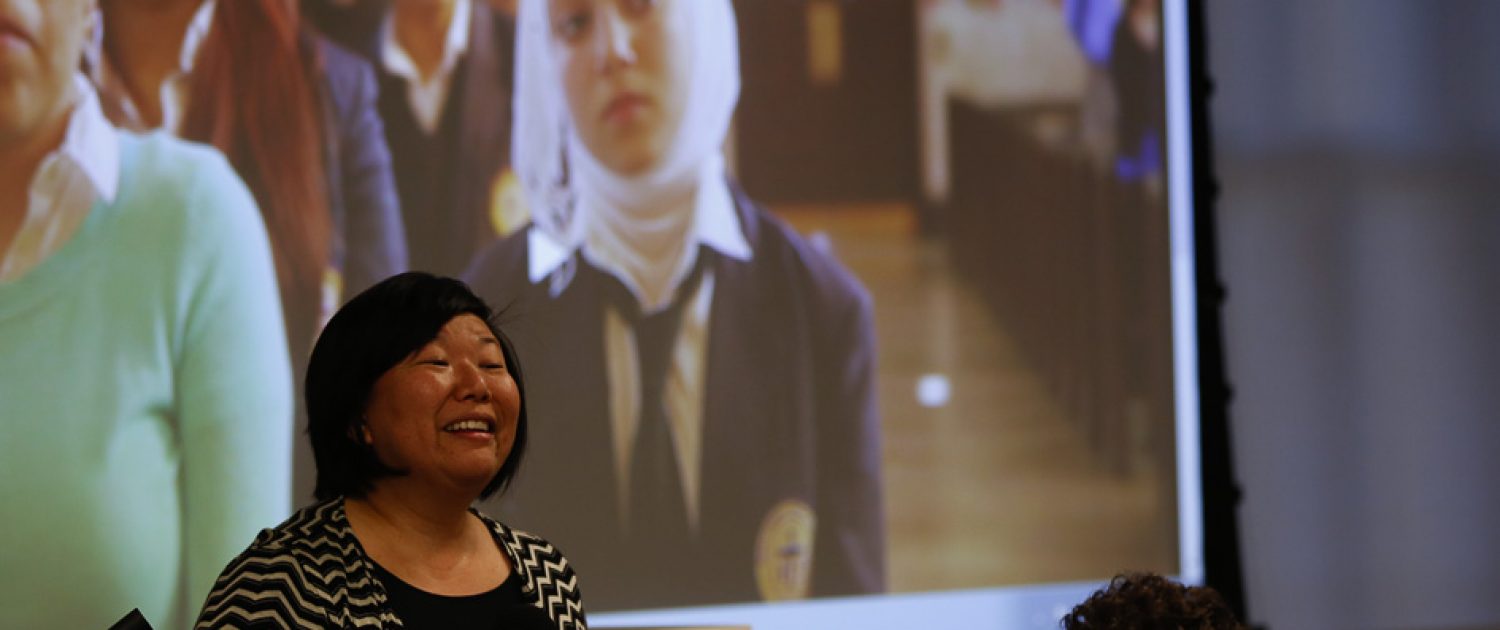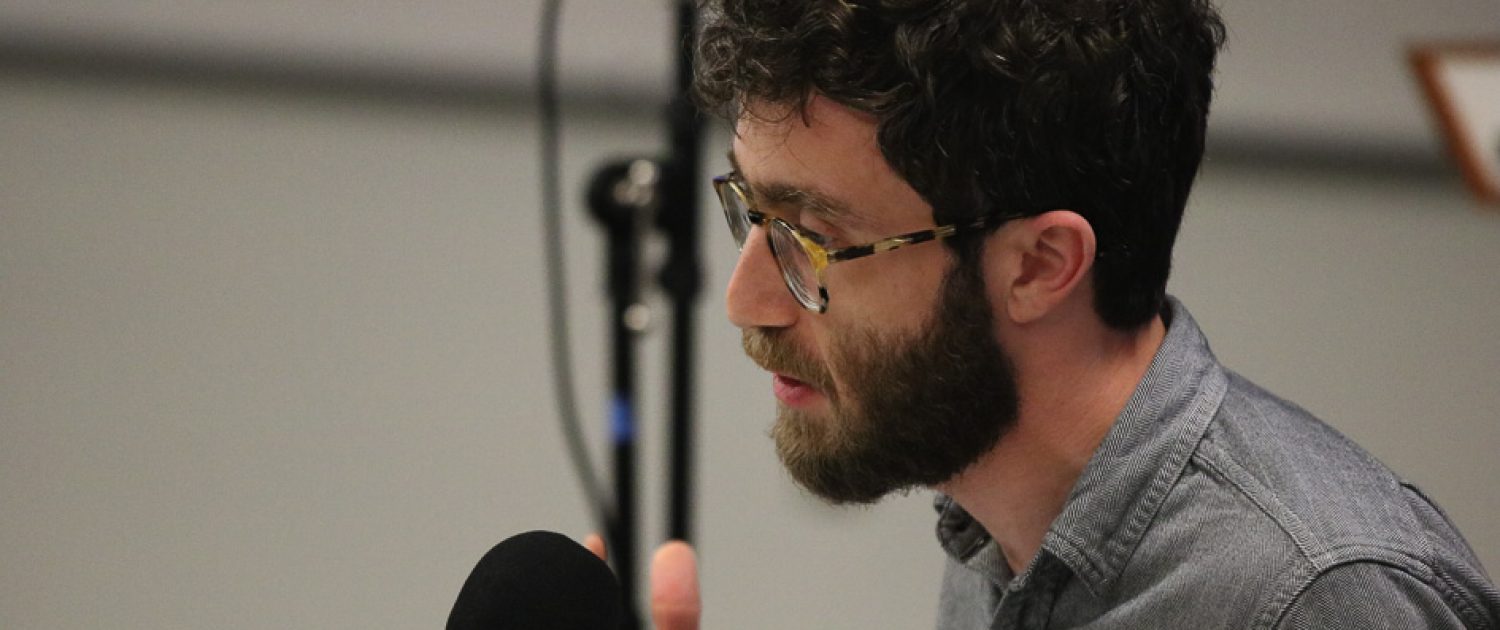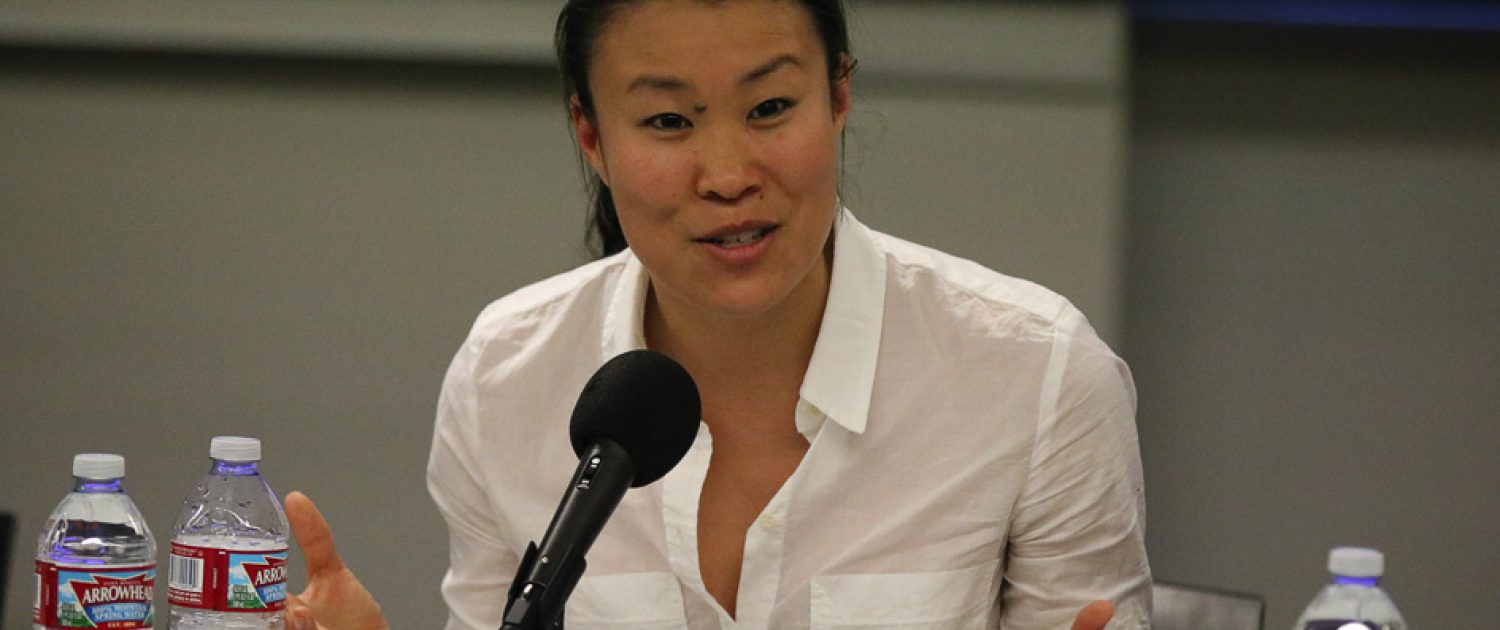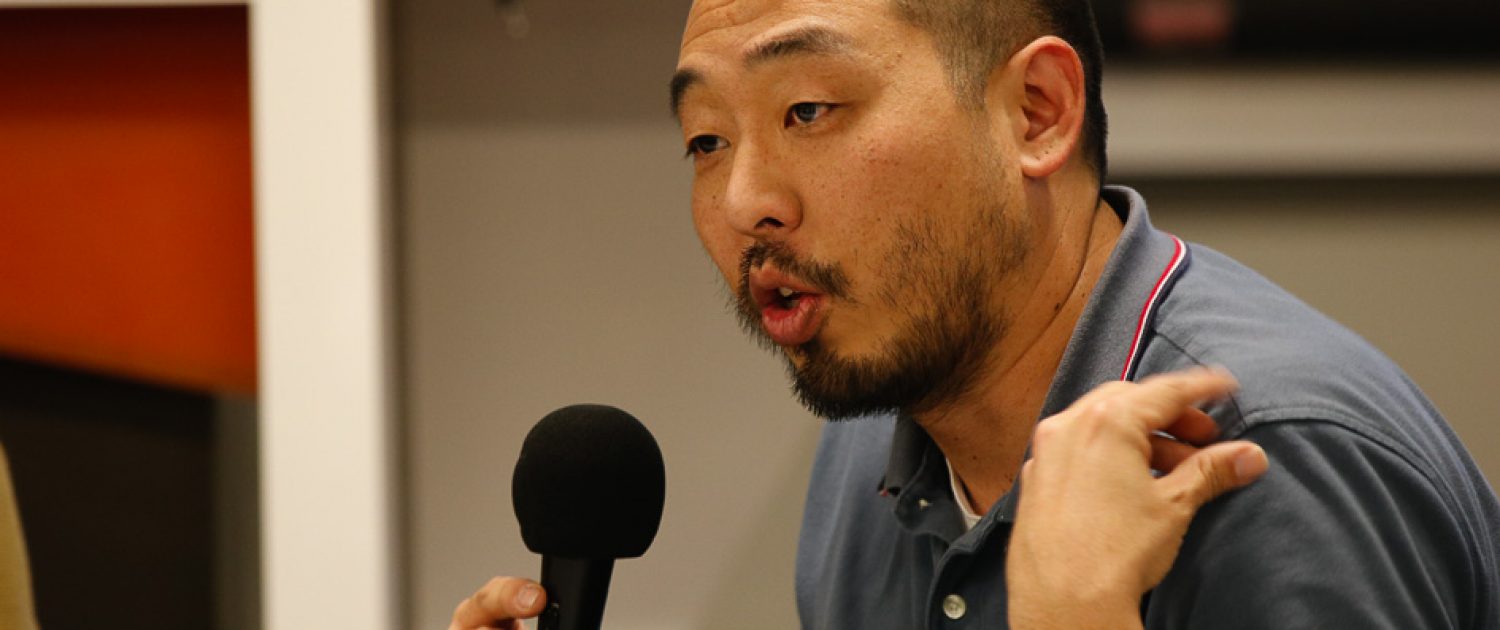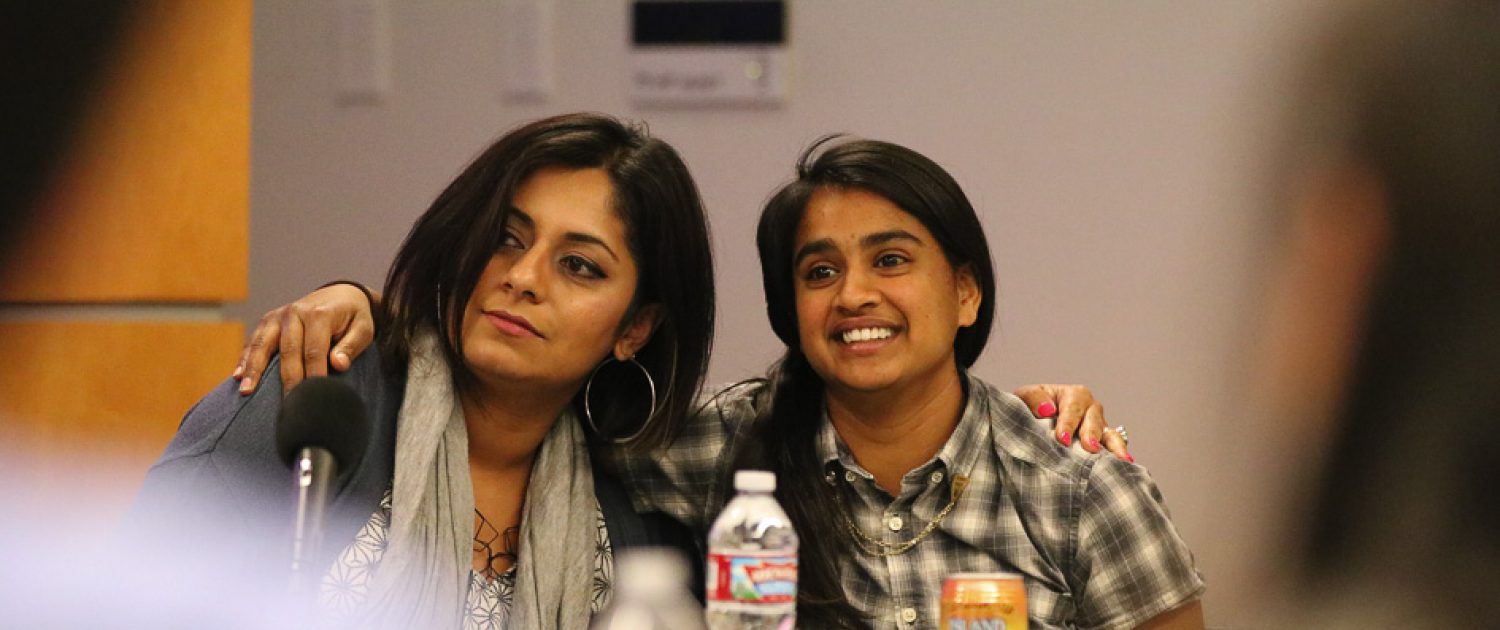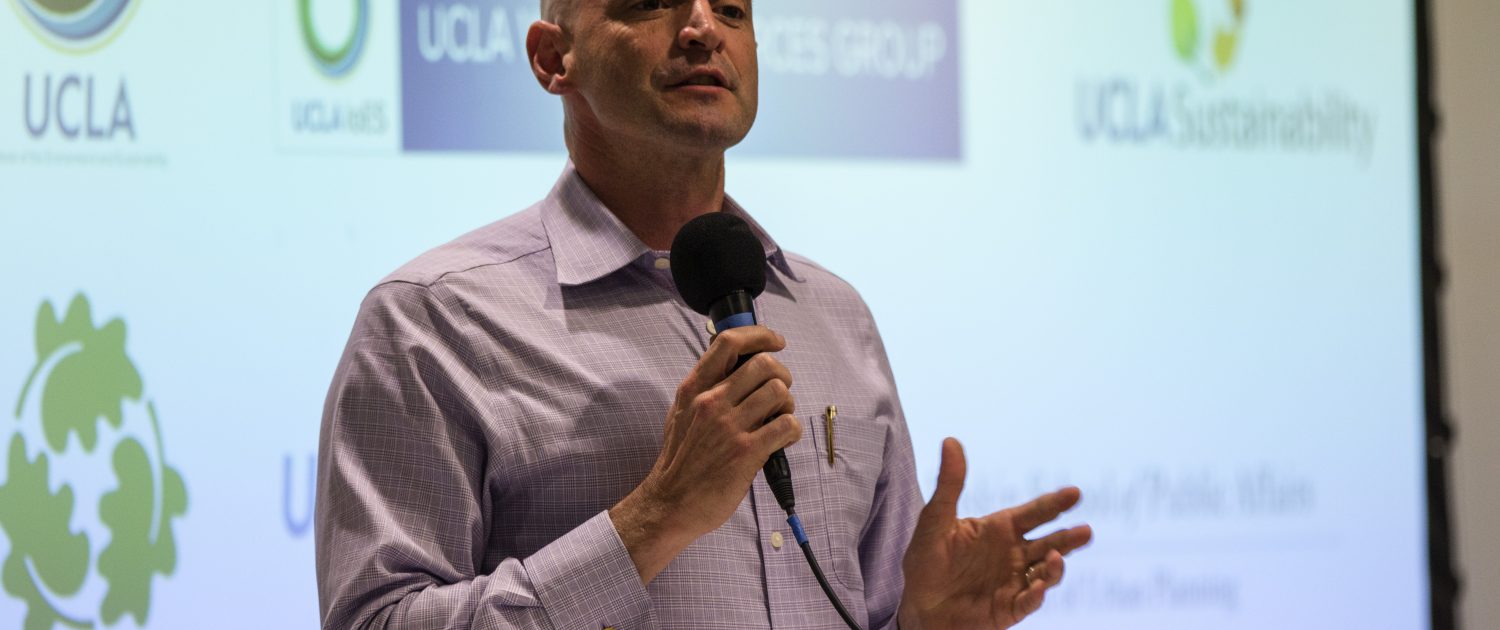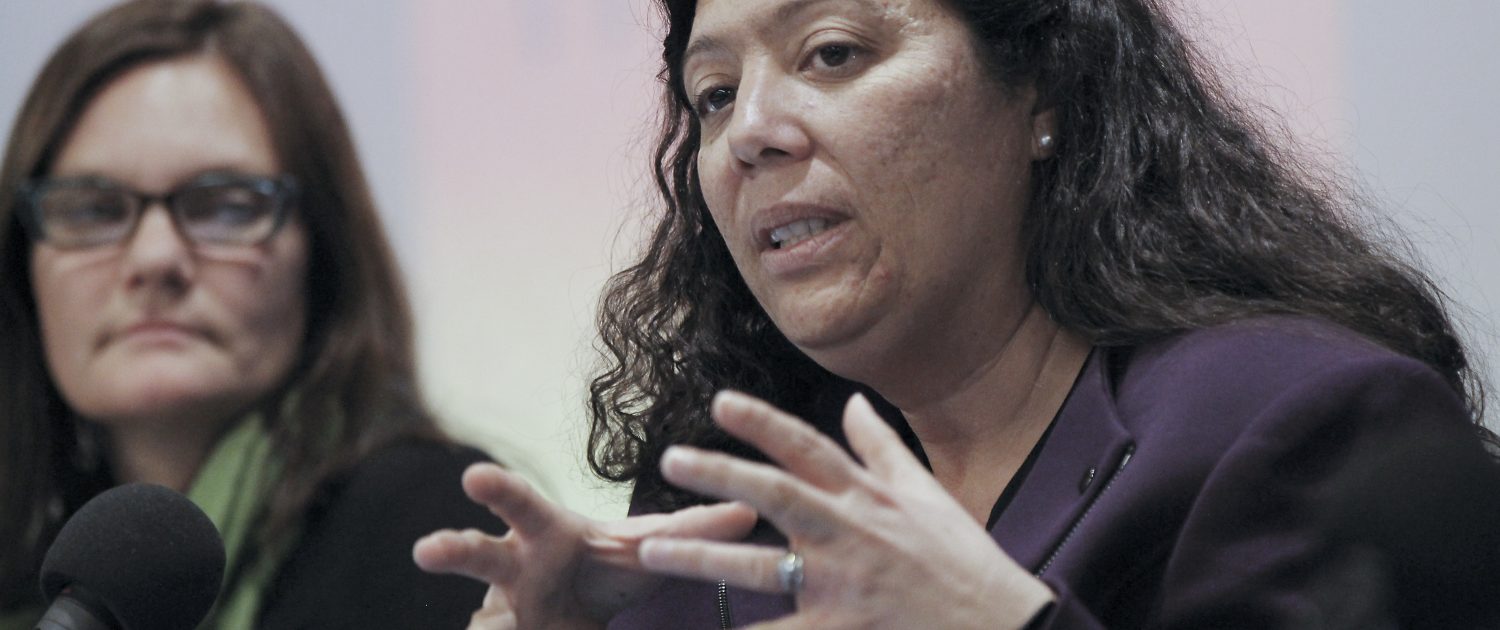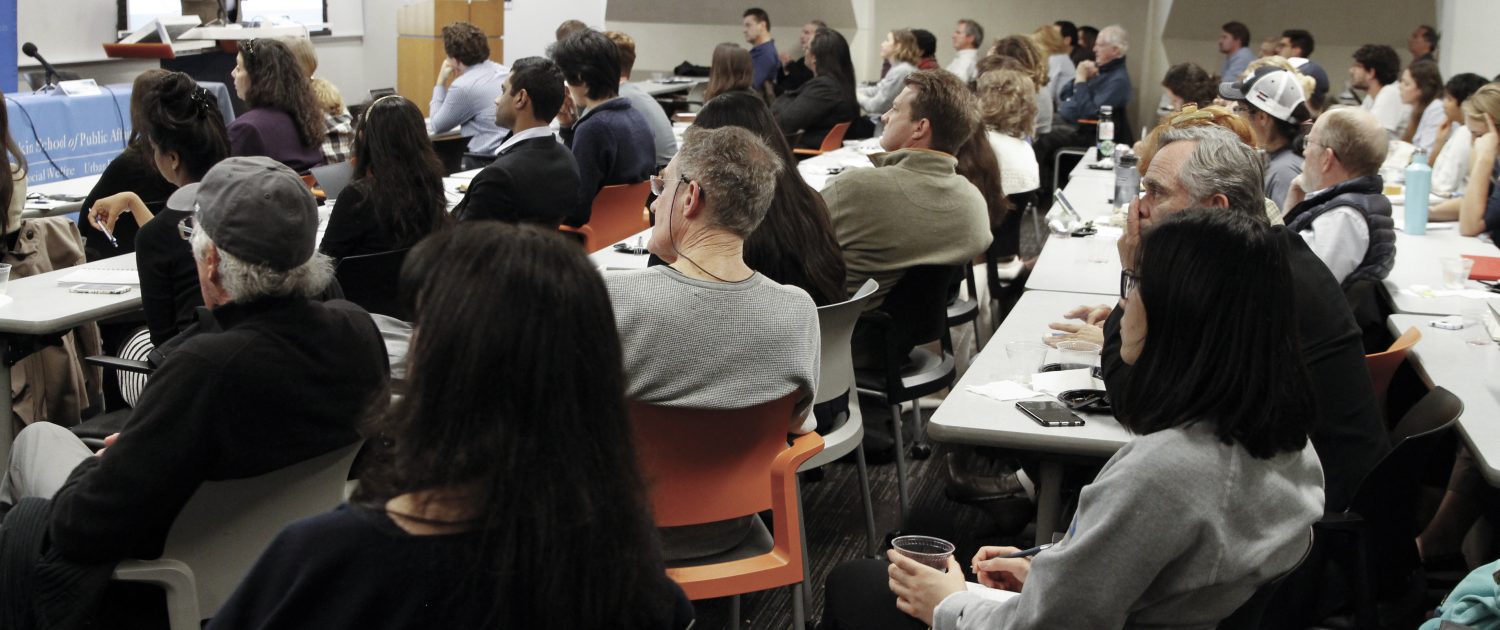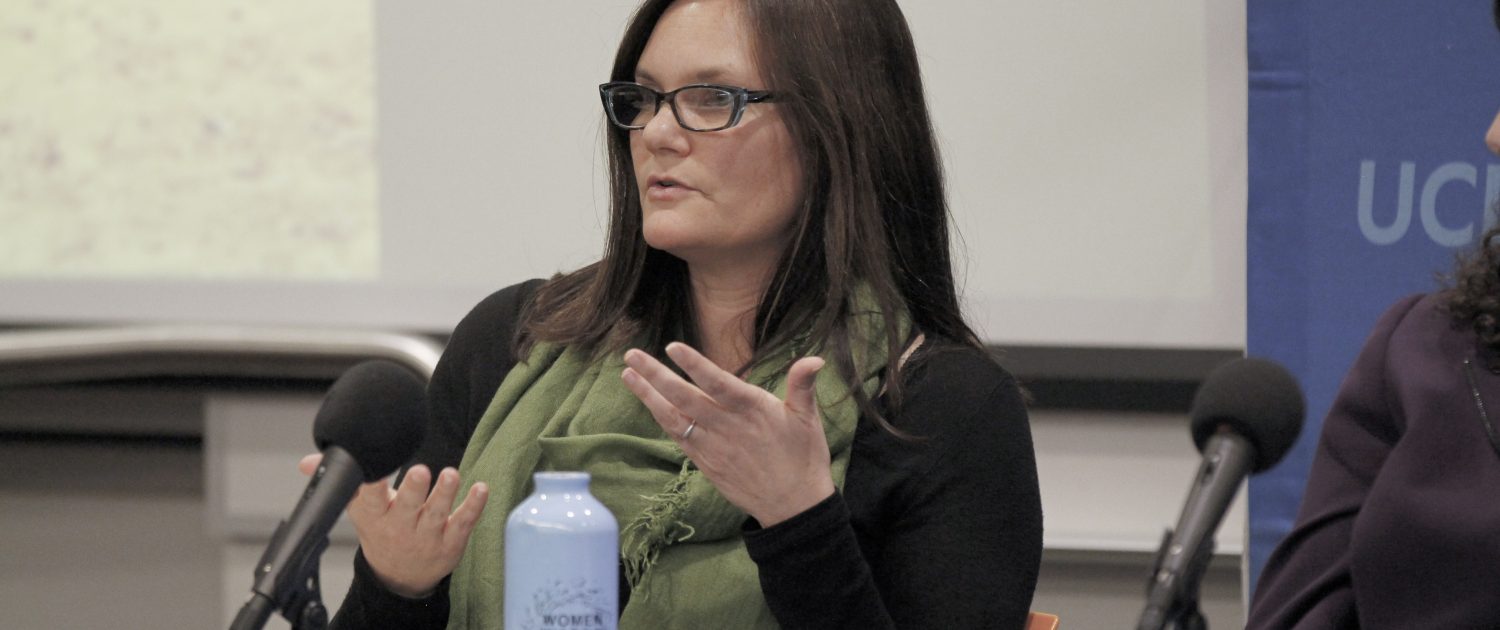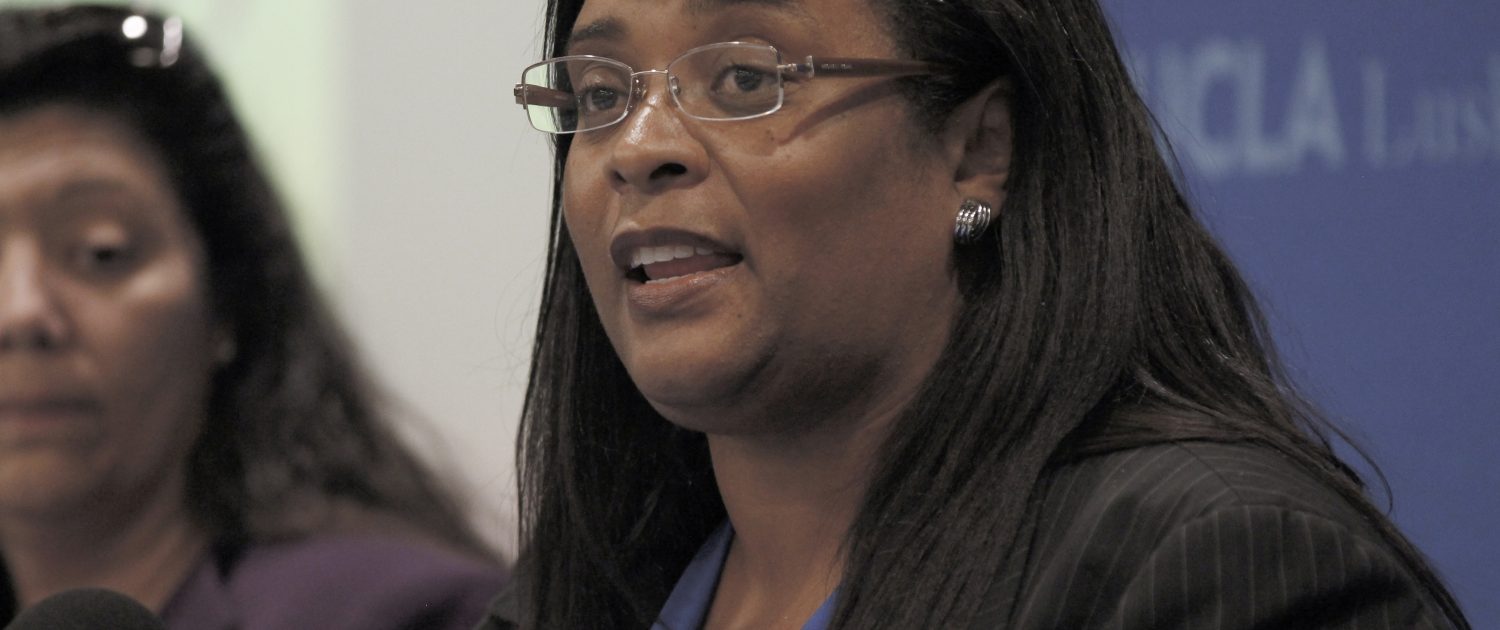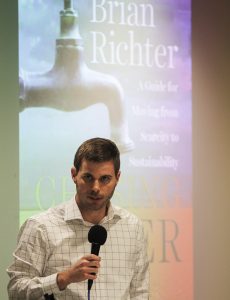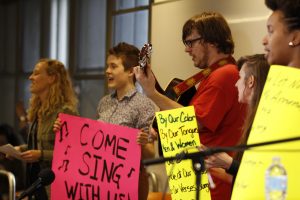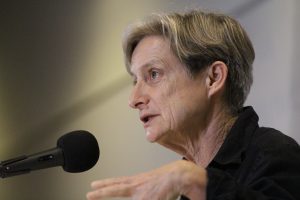UCLA Luskin Urban Planning Students Help Solve Real-World Problems At annual springtime welcome day and networking event, MURP students showcase their research in capstone projects designed to help clients
By Stan Paul
Master of Urban and Regional Planning (MURP) students don’t have to wait until they graduate to identify and solve real-world problems. Working with clients and agencies, the students tackle issues in their respective fields long before receiving their diplomas from the UCLA Luskin School of Public Affairs.
The capstone projects — yearlong research efforts — were on display April 6, 2017, at the department’s annual open house, during which prospective students are invited to meet current students, alumni, faculty and project clients. Each student project was represented by a poster that, to be effective, needed to easily convey information and be attention-grabbing.
“We have some students investigating the impact of a potential new bus line, looking at the role that accessory dwelling units might play in addressing the housing crisis,” said urban planning capstone instructor Brady Collins UP PhD ’16, citing a few examples of the nearly 40 displays. “One student is looking at the often overlooked, but important, role of women planners and planners of color in the history of Los Angeles. So there’s a really wide spectrum of different types of projects and different types of problems that the students are addressing.”
During the fall and winter quarters, Collins guides the second-year students from concept to completion. During the spring quarter, the students, who also work with urban planning faculty mentors, prepare their presentations for clients.
“It’s an intensive course,” Collins said. “We spend the first quarter looking at research design and research methods, how to write a literature review, how to conduct research. And we look at different ways of writing a policy report, or writing something that’s a little bit more focused.”
The projects can be based in Los Angeles or elsewhere, and may be with a planning firm, public agency or a nonprofit group. “UCLA has a reputation in the City of Los Angeles, so a number of organizations actually put their name in the hat and say: ‘We want a student from the master’s program to work with us. This is the problem or the research need that we have. And if there’s a student in the group that meets that, we would love to have them on board.’”
The reports and accompanying posters may also serve as a pathway to a job, Collins said, demonstrating to potential employers that “this is the knowledge and expertise that I have — this is what I am capable of doing as a planner.”
Alumnus David De Rosa MURP ’10, who works as a senior urban and transportation planner in Los Angeles, served as an evaluator for the projects. De Rosa said he was impressed by the quality of the posters, which seem to improve each year. “It’s an important skill in urban planning to communicate a complex issue in a simple way to be understood,” he said.
One example was “Planes, Trains, and Storm Drains: The Effects of Transportation Infrastructure on Water Runoff in Los Angeles County,” a project examining the region’s many transportation modes. Student Aviv Kleinman, whose client is the Southern California Association of Governments (SCAG), looked at ways the county can recapture storm water, and at policies that can be more sustainable.
“Water is precious,” Kleinman said. “Even though we had a really wet year this year we’re certainly going to be facing drought in the future. We already know what that’s like and it’s really important to recharge the ground water.”
Caitlin Dawson’s project, “Turning the Blue Line Green: Implementing Green Places along Metro’s Blue Line,” is designed to help Los Angeles County Metro implement sustainable projects along pathways. Dawson wants to improve the experience for people on bikes and on foot who commute to transit centers. Solving this so-called “first last mile” problem will involve partnerships with communities, she said.
“Basically, what I’ve been looking at is how they can implement them through ‘tactical urbanism,’” Dawson said. “That’s a way to implement projects that are short term, and kind of try out strategies to see if it’s a long-term thing a community might want to do. It’s coordinating with a lot of community stakeholders.”
Among the faculty touring the displays was Vinit Mukjiha, chair of urban planning.
“I enjoyed seeing how our students were able to address real-world challenges and practical planning problems through sophisticated research projects,” said Mukhija, who also served as a student project adviser. “Their work was a good representation of both the range of challenges planners face and the wide array of research methods available to help address them.”
He also noted the interaction of current and future students.
“It was also nice to see the exchange of ideas between graduating second-year students, first-year students who are getting ready to think about their capstone projects, and admitted students who are raring to start their professional studies,” Mukhija said.
In other welcome day events, the UCLA Luskin’s Department of Social Welfare hosted newly admitted students at UCLA’s Ackerman Grand Ballroom on the same day. And the Department of Public Policy welcomed its admitted students on Monday, April 10, 2017, with a full slate of activities.
Prospective students for all three departments had the opportunity to tour the UCLA campus and hear from current students about the Luskin experience. They also were offered the opportunity to sit in on alumni panels and learn about student groups and resources, from financial aid to alumni services.
